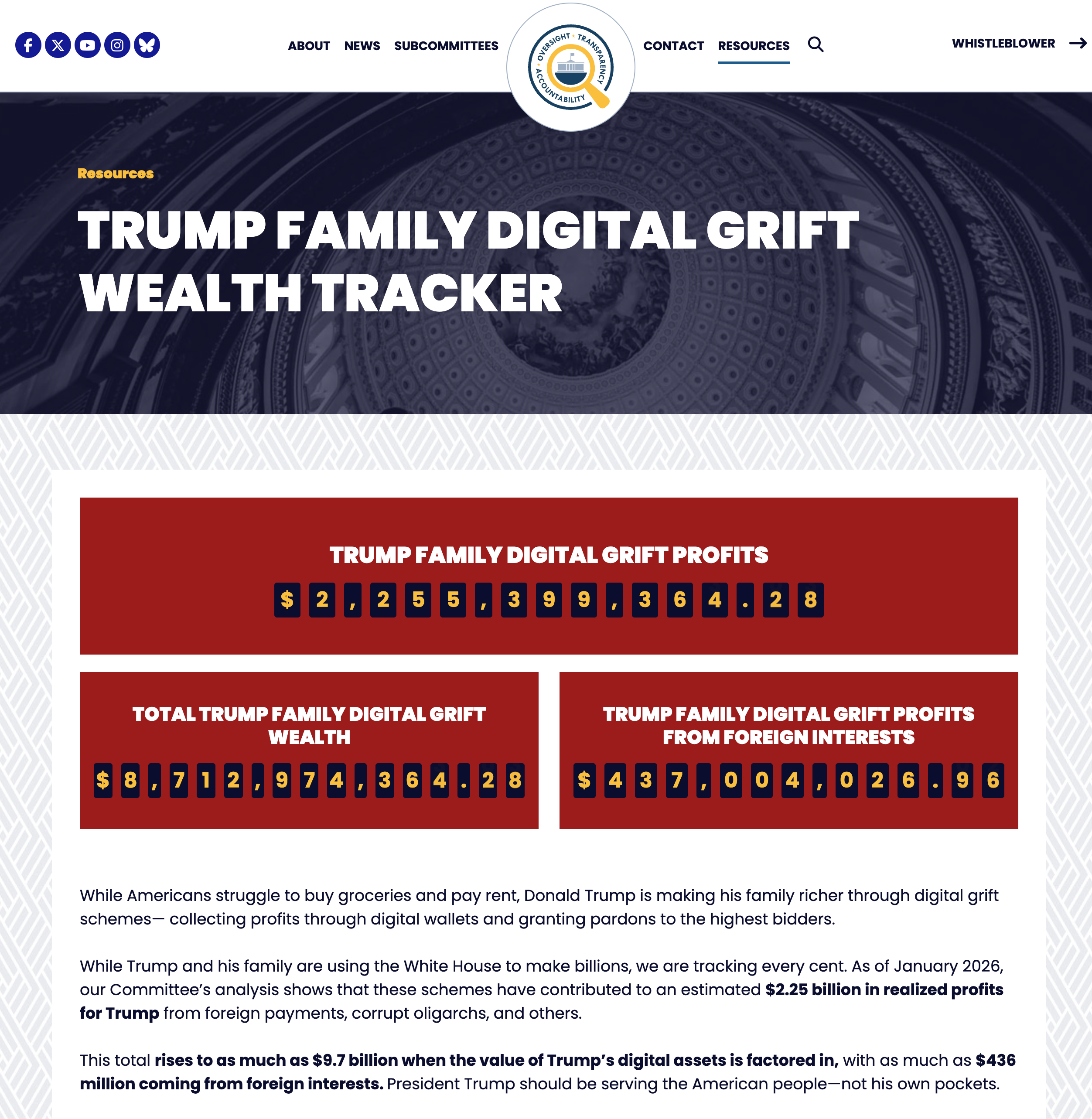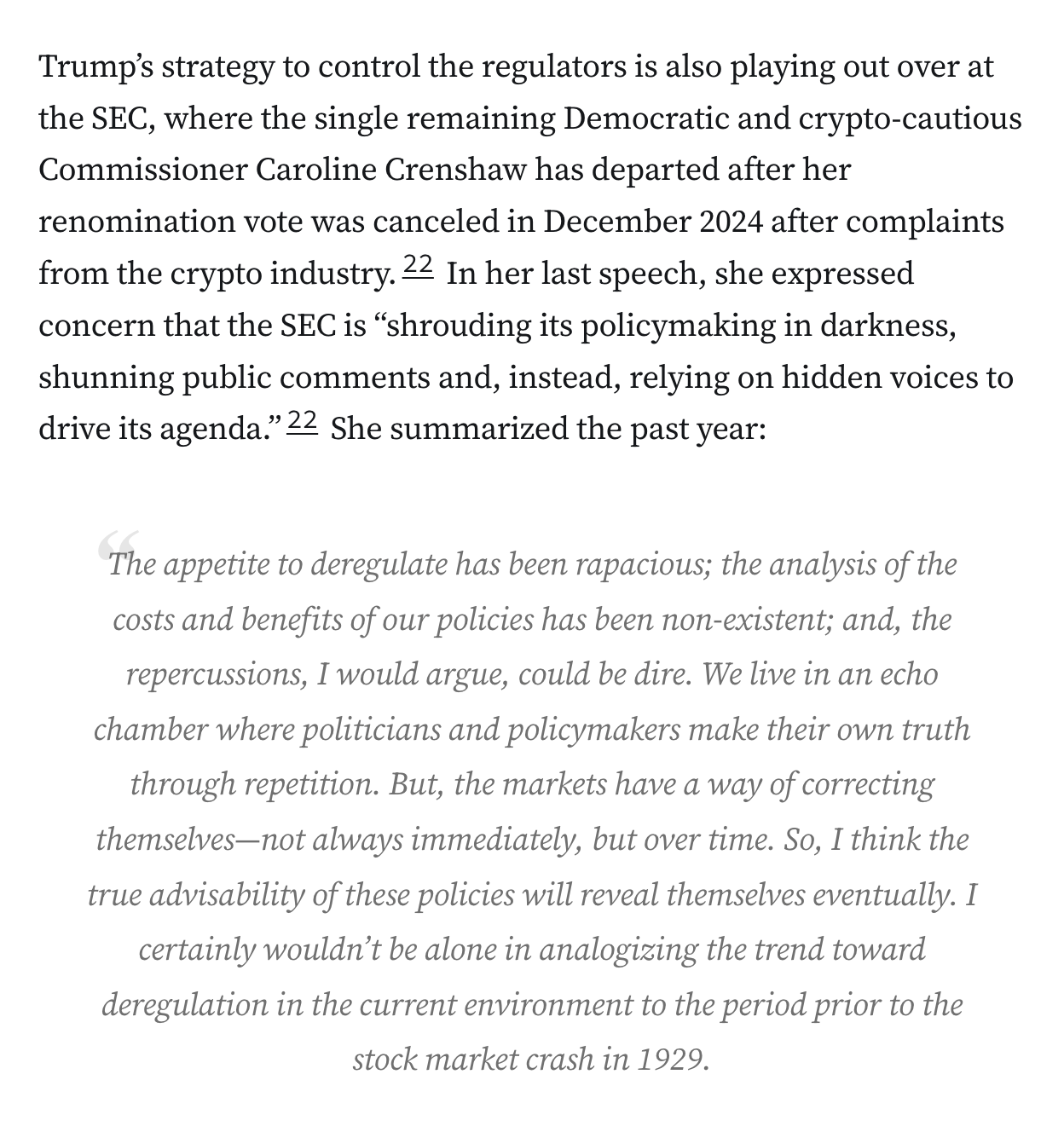Trump Family Digital Grift Profits $2,255,399,364.28
Total Trump Family Digital Grift Wealth $8,712,974,364.28
Trump Family Digital Grift Profits from Foreign Interests $437,004,026.96
While Americans struggle to buy groceries and pay rent, Donald Trump is making his family richer through digital grift schemes— collecting profits through digital wallets and granting pardons to the highest bidders.
While Trump and his family are using the White House to make billions, we are tracking every cent. As of January 2026, our Committee’s analysis shows that these schemes have contributed to an estimated $2.25 billion in realized profits for Trump from foreign payments, corrupt oligarchs, and others.
This total rises to as much as $9.7 billion when the value of Trump’s digital assets is factored in, with as much as $436 million coming from foreign interests. President Trump should be serving the American people—not his own pockets.








![The CFTC has a new Chairman now that the Senate has confirmed Michael Selig. Selig’s background is primarily in private practice representing crypto clients like Paradigm and eToro.20 In 2025, he briefly served as chief counsel for the SEC’s crypto task force, but besides that, Selig has extremely minimal regulatory experience — particularly in the many non-crypto markets the CFTC is expected to regulate.
Selig is also the only commissioner at the normally five-person CFTC, as Trump has seized control of regulators by appointing his own loyalists without appointing replacements for departing commissioners. Acting Chair Caroline Pham had previously announced she planned to leave when a chairman was appointed, and she has followed through on that promise. She immediately rocketed through the revolving door right into the lap of the crypto firm MoonPay, where she is now chief legal and administrative officer.21 You might recognize MoonPay as a frequent Trump crypto partner, helping process payments for both the $TRUMP memecoin and for Melania Trump’s 2021 NFT projects. You also might remember that they snagged that lucrative Trump memecoin partnership only weeks after attempting to make a $250,000 contribution to Trump’s inaugural committee, but got scammed instead [I88].](https://media.hachyderm.io/media_attachments/files/115/923/015/693/723/737/original/f50e9ddae12bca93.png)
